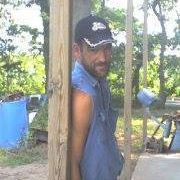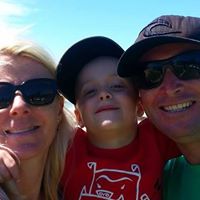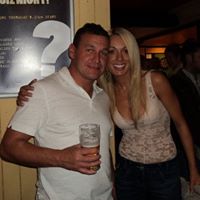Jason Buck Spence
age ~51
from Hood River, OR
- Also known as:
-
- Jason B Spence
- Nu Jason Spence
- Nu J Spence
- Jason S Pence
- Jason Speuce
Jason Spence Phones & Addresses
- Hood River, OR
- Powell, OH
- Minneapolis, MN
- 5941 Karla Ct, Portland, OR 97201
- Roseville, MN
- Columbus, OH
- Faribault, MN
- 11 Sherman Ave, Hood River, OR 97031
Resumes

Jason B Spence
view sourceWork:
Utc Aerospace Systems - Tase Imaging Systems

Jason Spence
view source
Jason Spence
view source
Jason Spence
view source
Jason Spence
view source
Jason Spence Ema Spence
view source
Jason Spence
view source
Jason Spence
view sourceName / Title
Company / Classification
Phones & Addresses
Manager
USA Money Club
Red Diamond Holding Group
Grant and Loan Filing Services
Red Diamond Holding Group
Grant and Loan Filing Services
3665 East Bay Dr Ste204, Box 170, Largo, FL 33771-1987
(877)3397711
(877)3397711
Us Patents
-
Methods And Systems For Converting Precursor Cells Into Intestinal Tissues Through Directed Differentiation
view source -
US Patent:20130137130, May 30, 2013
-
Filed:May 6, 2011
-
Appl. No.:13/695887
-
Inventors:James M. Wells - Cincinnati OH, US
Jason R. Spence - Cincinnati OH, US
Aaron M. Zorn - Cincinnati OH, US
Noah F. Shroyer - Cincinnati OH, US -
Assignee:CHILDREN'S HOSPITAL MEDICAL CENTER - Cincinnati OH
-
International Classification:C12N 5/071
-
US Classification:435 29, 435377
-
Abstract:The generation of complex organ tissues from human embryonic and pluripotent stem cells (PSCs) remains a major challenge for translational studies. It is shown that PSCs can be directed to differentiate into intestinal tissue in vitro by modulating the combinatorial activities of several signaling pathways in a step-wise fashion, effectively recapitulating in vivo fetal intestinal al development. The resulting intestinal “organoids” were three-dimensional structures consisting of a polarized, columnar epithelium surrounded by mesenchyme that included a smooth muscle-like layer. The epithelium was patterned into crypt-like SOX9-positive proliferative zones and villus-like structures with all of the major functional cell types of the intestine. The culture system is used to demonstrate that expression of NEUROG3, a pro-endocrine transcription factor mutated in enteric anendocrinosis is sufficient to promote differentiation towards the enteroendocrine cell lineage. In conclusion, PSC-derived human intestinal tissue should allow for unprecedented studies of human intestinal development, homeostasis and disease.
-
Methods And Systems For Converting Precursor Cells Into Intestinal Tissues Through Directed Differentiation
view source -
US Patent:20200190478, Jun 18, 2020
-
Filed:Oct 11, 2019
-
Appl. No.:16/599620
-
Inventors:- Cincinnati OH, US
Aaron M. Zorn - Cincinnati OH, US
Jason R. Spence - Ann Arbor MI, US
Noah F. Shroyer - Houston TX, US -
International Classification:C12N 5/071
C12N 5/077 -
Abstract:The generation of complex organ tissues from human embryonic and pluripotent stem cells (PSCs) remains a major challenge for translational studies. It is shown that PSCs can be directed to differentiate into intestinal tissue in vitro by modulating the combinatorial activities of several signaling pathways in a step-wise fashion, effectively recapitulating in vivo fetal intestinal development. The resulting intestinal “organoids” were three-dimensional structures consisting of a polarized, columnar epithelium surrounded by mesenchyme that included a smooth muscle-like layer. The epithelium was patterned into crypt-like SOX9-positive proliferative zones and villus-like structures with all of the major functional cell types of the intestine. The culture system is used to demonstrate that expression of NEUROG3, a pro-endocrine transcription factor mutated in enteric anendocrinosis is sufficient to promote differentiation towards the enteroendocrine cell lineage. In conclusion, PSC-derived human intestinal tissue should allow for unprecedented studies of human intestinal development, homeostasis and disease.
-
Methods And Systems For Converting Precursor Cells Into Intestinal Tissues Through Directed Differentiation
view source -
US Patent:20170362573, Dec 21, 2017
-
Filed:Jun 20, 2017
-
Appl. No.:15/627588
-
Inventors:- Cincinnati OH, US
Aaron M. Zorn - Cincinnati OH, US
Jason R. Spence - Ann Arbor MI, US
Noah F. Shroyer - Houston TX, US -
International Classification:C12N 5/071
C12N 5/077 -
Abstract:The generation of complex organ tissues from human embryonic and pluripotent stem cells (PSCs) remains a major challenge for translational studies. It is shown that PSCs can be directed to differentiate into intestinal tissue in vitro by modulating the combinatorial activities of several signaling pathways in a step-wise fashion, effectively recapitulating in vivo fetal intestinal development. The resulting intestinal “organoids” were three-dimensional structures consisting of a polarized, columnar epithelium surrounded by mesenchyme that included a smooth muscle-like layer. The epithelium was patterned into crypt-like SOX9-positive proliferative zones and villus-like structures with all of the major functional cell types of the intestine. The culture system is used to demonstrate that expression of NEUROG3, a pro-endocrine transcription factor mutated in enteric anendocrinosis is sufficient to promote differentiation towards the enteroendocrine cell lineage. In conclusion, PSC-derived human intestinal tissue should allow for unprecedented studies of human intestinal development, homeostasis and disease.
News

Volvo Trucks Announces Model Year 2016 Enhancements for Significant Fuel ...
view source- "In real-world operations, an aerodynamic tractor doesn't guarantee optimal aerodynamics for the tractor-trailer combination," said Jason Spence, Volvo Trucks product marketing manager. "Through our holistic design approach, we've made further enhancements at key exterior and interior locations of o
- Date: Aug 14, 2014
- Category: Sci/Tech
- Source: Google
Myspace

Jason Spence
view sourceLocality:
Miami/Holyoke/Sebring/Clearwater, Florida
Gender:
Male
Birthday:
1928
Youtube
Flickr
Plaxo

Jason A. Spence
view sourceSmyrna, TNI'm a guy who's lucky enough to do what he loves to support the ones he loves.
Classmates

Jason Spence (Cash)
view sourceSchools:
Westfield High School Westfield NY 1991-1995
Community:
Daniel Yeaney, George Beck, Robert Dimaio

Jason Spence
view sourceSchools:
Greater New York Academy Woodside NY 1996-2000
Community:
Nury Sanchez, Perez Geraldo, Gerald Meyer

Jason Spence
view sourceSchools:
Lake Braddock Secondary School Burke VA 2003-2007
Community:
Bill Gary

Jason Spence
view sourceSchools:
Ashern Central High School Ashern Palestinian Territory, Occupie 1998-2002
Community:
Dawnna Broustal, Robert Rowan, Fiona Kirkpatrick, Kevin Bacon

Jason Sponseller (Spence)
view sourceSchools:
Manchester High School Manchester OH 1996-2000
Community:
Glenn Fischer

Jason Spence
view sourceSchools:
Semiahmoo Secondary School Surrey Saudi Arabia 1984-1988
Community:
Susan Taylor, Richard Kempe, Gillian Jill, Dana Thompson

Jason Spence
view sourceSchools:
Miramar High School Miramar FL 1991-1995
Community:
Jane Latham, Lori Bush

Jason Spence, Destin Elem...
view source
Jason M. Spence
view source
Jason Spence
view source
Jason Spence
view source
Jason Spence
view source
Jason Spence
view source
Jason Spence
view source
Jason Spence
view source
Jason Spence
view sourceGet Report for Jason Buck Spence from Hood River, OR, age ~51

















